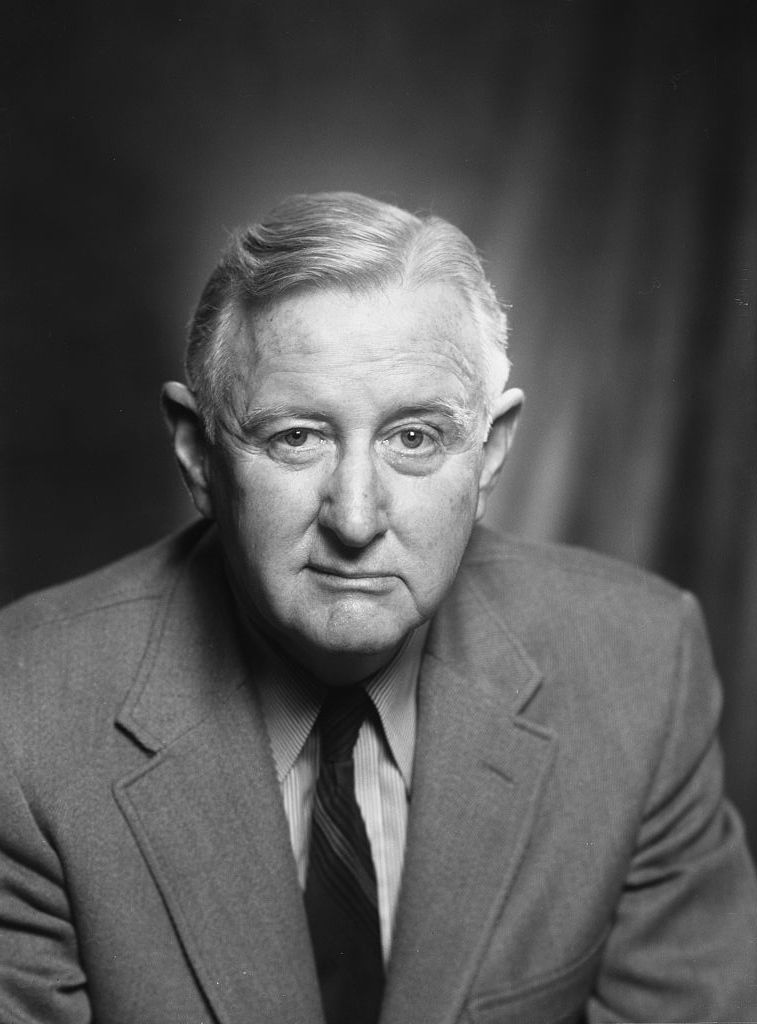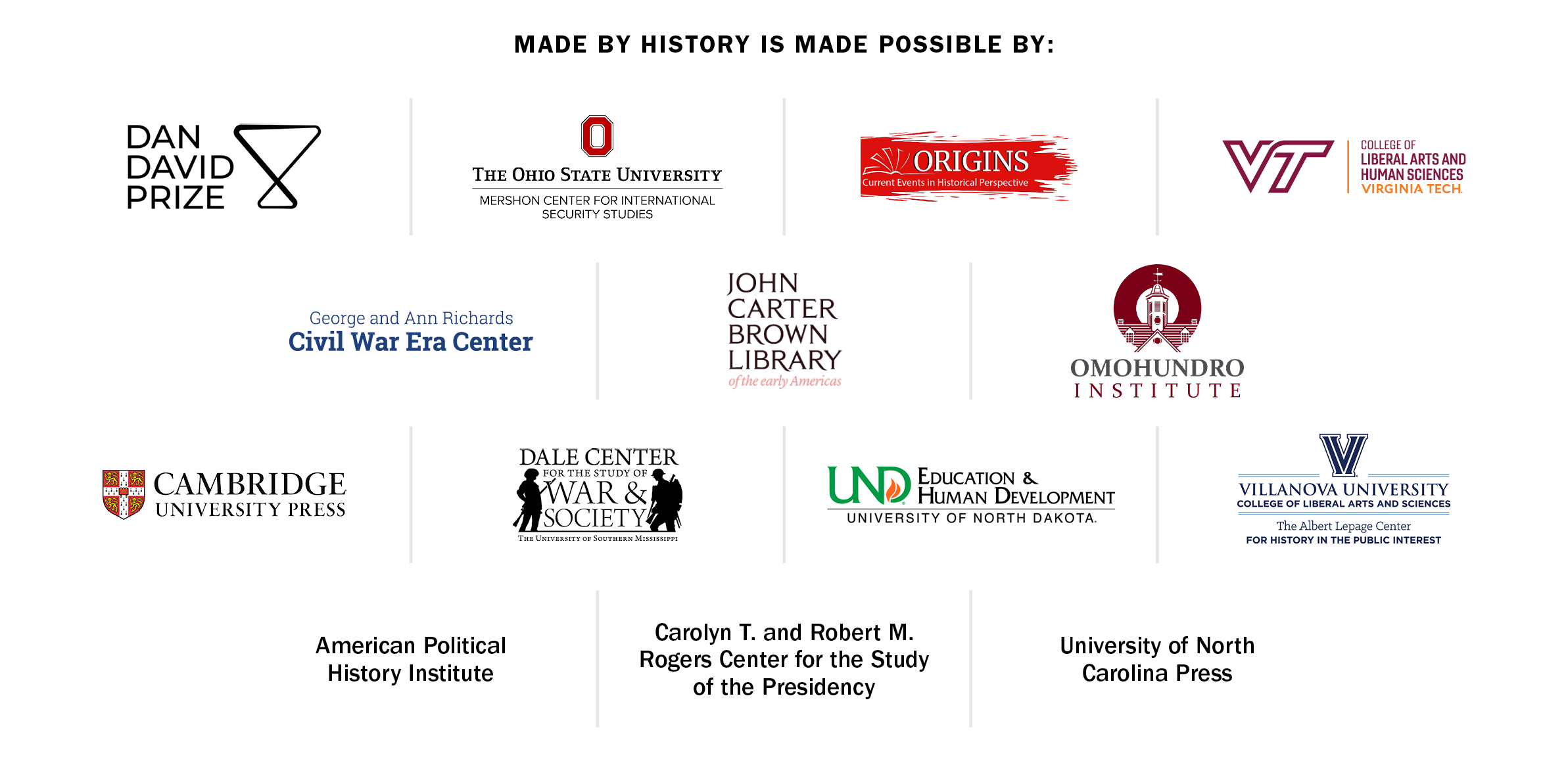
Disagreements over whether universities should curb the rhetoric of students protesting Israel’s military incursion into Gaza have been striking in their ferocity, and remain heated more than two months after the disastrous congressional hearing in which New York Representative Elise Stefanik pressed the presidents of the University of Pennsylvania, Harvard, and MIT about whether calling for a campaign of “genocide” against Jews would violate their university’s policies against ‘bullying and harassment.” Caught between warring factions on campus and beyond and hamstrung by their schools' seemingly contradictory speech and conduct policies, the presidents—two of whom have since resigned—offered only non-committal responses, to widespread dissatisfaction.
Conflicts over the boundaries of acceptable speech on campus—or whether any such boundaries should even exist—are hardly new. Few could better attest to this or to the lessons they offer than the late C. Vann Woodward, one of America’s most distinguished historians, as well as one of its most ardent defenders of free speech. Woodward’s abiding conviction that “the results of free expression are to the general benefit in the long run, however unpleasant they may appear at the time,” should inform the thinking of administrators now weighing the intrinsic long-term rewards of guaranteeing free speech on their campuses against demands to protect students from hateful speech in the here and now.
Woodward began to earn his credentials as a champion of free speech in the early 1930s when he spoke out forcefully against police persecution of communist organizers in Atlanta.

Teaching at Johns Hopkins in the early 1950s he again weighed in to prevent the firing of his faculty colleague Owen Lattimore, after Senator Joseph McCarthy accused Lattimore of being a Soviet agent. Lattimore’s case fell into a general pattern dating back to the early days of the republic, in which people opposing the prevailing conservative majority were silenced, either through political repression, ostracism, or economic or social coercion.
Read More: The Dangers of Curtailing Free Speech on Campus
Yet, by the time Woodward arrived at Yale in 1962, most attempts to restrict speech on campuses were coming from the opposing ideological direction, as left-leaning students and faculty rallied to prevent dissenting voices on the right from being heard. Though he had been at Yale for scarcely a year, Woodward voiced his extreme displeasure in September 1963, when then acting president Kingman Brewster persuaded a student organization to rescind a speaking invitation to segregationist Alabama Governor George Wallace.
By the end of the decade, the leftist speech police had moved on to muzzling supporters of the Vietnam War. In 1972, Woodward objected vigorously when student protestors formed a physical barrier to prevent former Vietnam commander General William Westmoreland from speaking at Yale.
Two years later, he protested just as vehemently about students shouting down William A. Shockley, a black-inferiority proponent.
Woodward’s outspokenness on such incidents made him a logical choice to chair a committee created by Brewster to craft what both agreed was a much-needed statement affirming Yale’s unwavering commitment to free speech.
The result was a new free speech policy, released in 1975, and better known on campus as the “Woodward Report.” The document made a forceful case for freedom of speech as an immutable principle by which any university worthy of the designation should abide, stressing “the need for unfettered freedom, the right to think the unthinkable, discuss the unmentionable, and challenge the unchallengeable. . . . We value freedom of expression precisely because it provides a forum for the new, the provocative, the disturbing, and the unorthodox.”
A university might well be “a special kind of small society,” the report’s authors conceded, but its “primary function is to discover and disseminate knowledge…. It cannot make its primary and dominant value the fostering of friendship, solidarity, harmony, civility, or mutual respect,” and remain true to its “central purpose.” Simply put, when there was a choice to be made, the “need to guarantee free expression” must take precedence over concern for “civility and mutual respect.”
Commentators eagerly embraced the Woodward Report as a definitive blueprint for resolving —or at least containing—one of the most perennially divisive issues confronting campus administrators. Some students and faculty were not so sure, including a dissenting member of Woodward’s committee who foresaw such an absolutist stance on free speech as giving tacit license for persecution and harassment of “small and powerless minorities” on campus.
His concern seemed to be well-placed in the 1980s when bulletin boards at Yale used by gay student organizations were routinely vandalized. By 1983, the problem had grown severe enough to spur a campus-wide research project aimed at collecting “accounts of verbal and physical harassment” of gay and lesbian students.
Matters seemed to come to a head in 1986 when undergraduate Wayne Dick posted flyers that mocked “Gay and Lesbian Awareness Days” by announcing “Bestiality Awareness Days.” University administrators quickly charged Dick with violating Yale’s policy against “harassment or intimidation of members of the university community on the basis of their sexual orientation” and a campus executive committee placed him on two years’ probation. Dick, however, insisted that his actions fell under the protections guaranteed in the Woodward Report.
Though Woodward had been retired for 10 years, he drew heavily on the enormous clout he still enjoyed on campus in order to get Dick’s probation lifted. In his mind, Dick’s actions did not constitute “harassment” because he had not advocated “violence or intimidation” at any point. "Certainly I don't agree with his ideas,” Woodward explained, “but they all come under the protection of free speech."
If anything, Woodward became more adamant on this point as he grew older, but the weight of opinion was already shifting against him at Yale and elsewhere. As administrators made boosting diversity on campus an increasingly urgent institutional priority, efforts to attract and retain more minority students and faculty ushered in policies aimed at making them feel at ease.
Read More: What the State of the American South a Half-Century Ago Revealed About the Whole Country's Future
With schools such as Wisconsin and Michigan leading the way at the end of the 1980s, hundreds of colleges and universities implemented speech codes and other provisions aimed at preventing the intimidation and persecution of minorities on campus. The courts would strike down speech codes at a number of public universities as violations of the First Amendment. Still, be the school public or private, including both Harvard and Penn, wherever these attempts to limit speech survived, they did so in an uneasy, even paradoxical coexistence with policies that either explicitly or implicitly invoked the First Amendment, which strictly forbids any abridgment of the freedom of speech.
Proponents of speech codes were looking to shelter minorities from the abuse of free speech protections by others. There was little apparent concern that these protections might also be weaponized by one student minority against another.
Yet that is the precisely the issue now at hand on a number of American campuses. Both the pro-Palestinian and pro-Israeli factions constitute minorities within the student bodies at these embattled institutions. Supporters of a Palestinian state have become more vocal and insistent since Hamas’s Oct. 7 attack on Israel, with some of their rhetoric featuring the kind of resentment and rage historically associated with religious or cultural nationalism.

In turn, although the share of Americans who support Israel’s ongoing military campaign in Gaza has fallen off a bit in recent weeks, it still includes a sizable portion of the academic donor class. Their demands to censor critics of Israel’s military response have introduced another facet to the free speech debate. The rapidly escalating endowment arms race makes it difficult to limit donors’ involvement in university affairs, especially when gifts come not simply with specific strings but powerful emotions attached. As the recent outcry from Penn donors suggests, the Israel-Hamas war has brought a new sense of urgency to the longstanding debate over what universities “owe” their benefactors.
There is another differentiating element to the war over words now engulfing our universities. The assaults on free speech that Woodward sought to repulse largely emanated from one end of the political spectrum or the other. By contrast, the impetus for today’s conflicts seems to be coming, both on and off campus, from several directions at the same time.
These contemporary clashes over campus speech policies reflect the powerful and complex forces that have dramatically altered the landscape of American higher education since Woodward’s death in 1999. That period has been marked by a growing inclination to challenge the primacy long accorded to free speech at our universities. There is all the more reason, then, to harken back to Woodward's position on such challenges, particularly his warning that succumbing to pressures to restrict speech on campus, would do grave harm to the intellectual health of a university. Whether today’s college administrators can tune out the anger and shouting of the current moment long enough to consider this counsel, however, remains to be seen.
James C. Cobb is Spalding distinguished professor of history emeritus at the University of Georgia. His most recent book is C. Vann Woodward, America’s Historian (2022).
Made by History takes readers beyond the headlines with articles written and edited by professional historians. Learn more about Made by History at TIME here. Opinions expressed do not necessarily reflect the views of TIME editors.
More Must-Reads From TIME
- The 100 Most Influential People of 2024
- How Far Trump Would Go
- Scenes From Pro-Palestinian Encampments Across U.S. Universities
- Saving Seconds Is Better Than Hours
- Why Your Breakfast Should Start with a Vegetable
- 6 Compliments That Land Every Time
- Welcome to the Golden Age of Ryan Gosling
- Want Weekly Recs on What to Watch, Read, and More? Sign Up for Worth Your Time
Write to James C. Cobb / Made by History at madebyhistory@time.com
